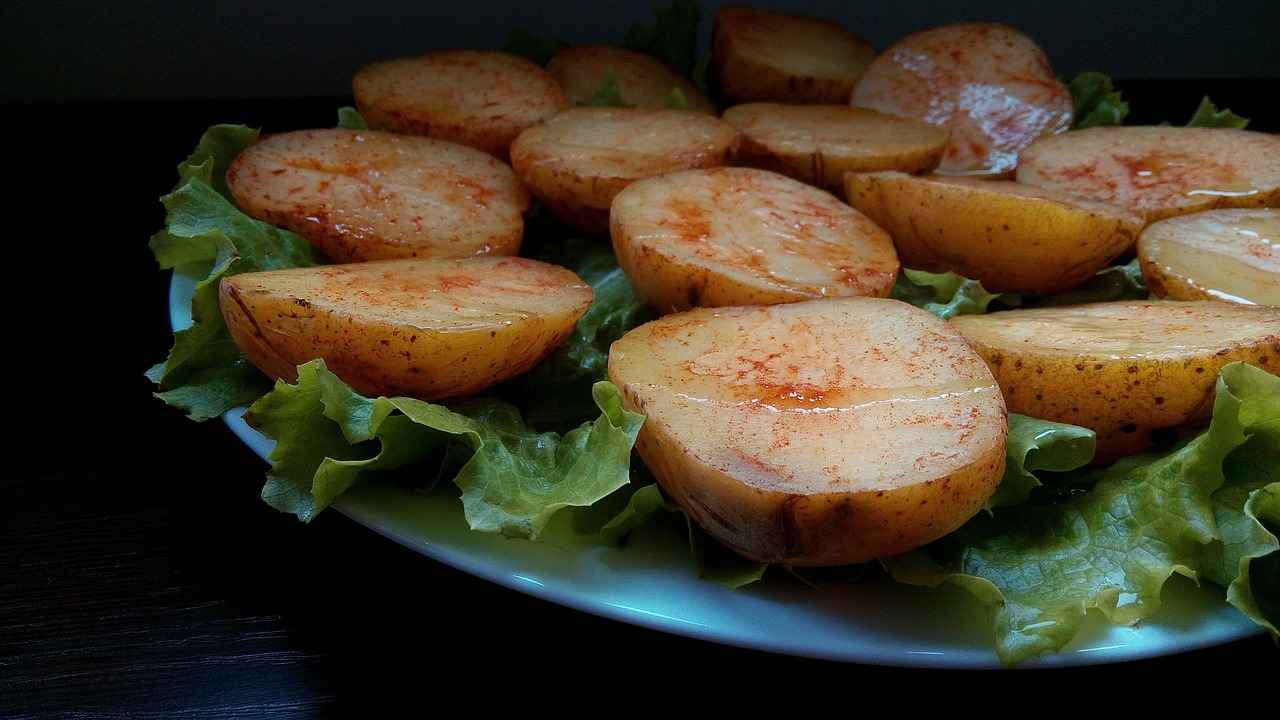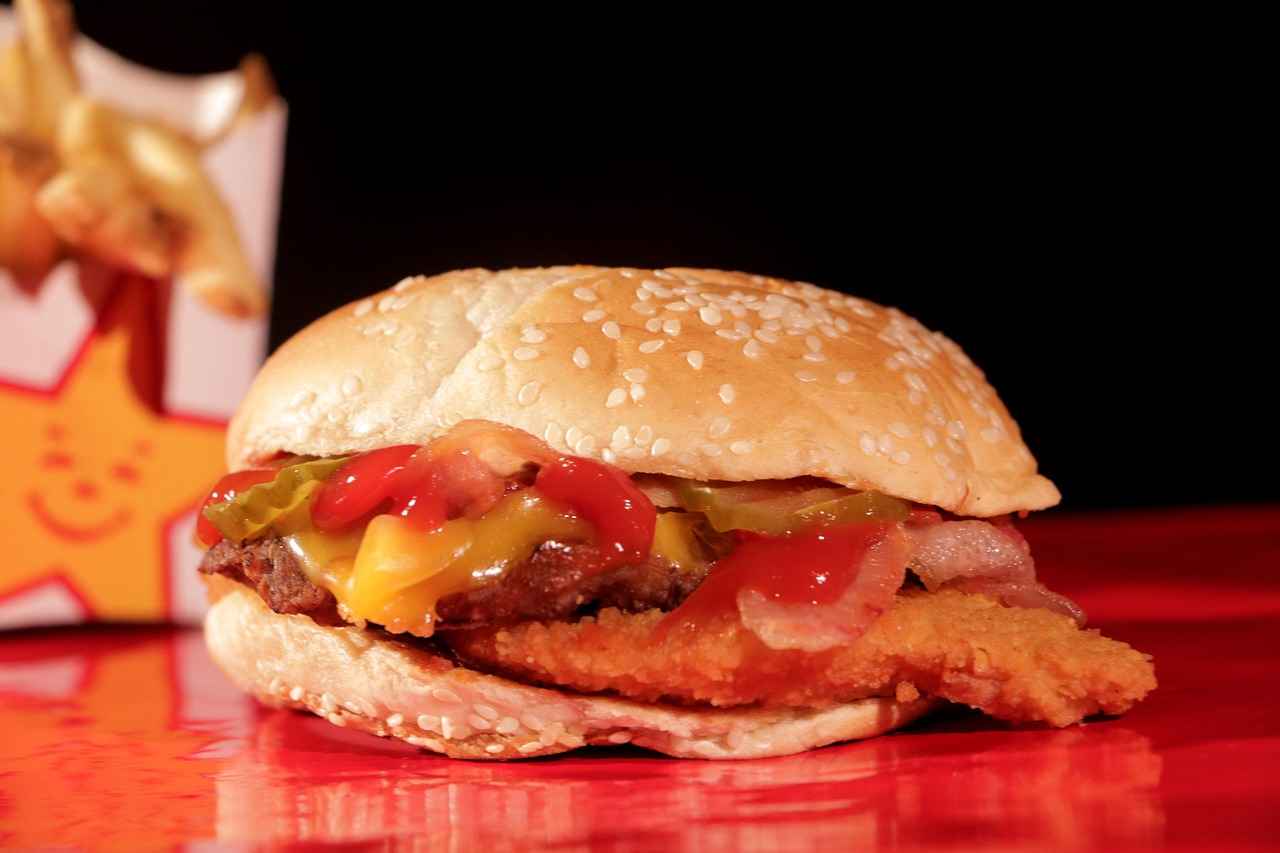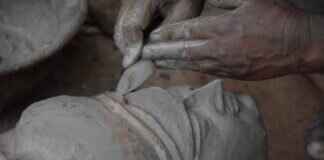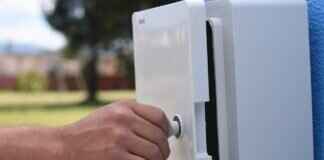This article delves into the guidelines and recommendations regarding water intake during fasting for blood work. It aims to clarify common misconceptions and provide practical insights for patients preparing for tests.
Understanding Fasting for Blood Tests
Fasting before blood tests is a common requirement that ensures accurate test results. Fasting typically means abstaining from all food and beverages, except for water, for a specified period before the test. This practice is essential as it helps eliminate variables that could skew the results, such as food intake and its metabolic effects.
Is Water Allowed During Fasting?
Many individuals wonder if they can drink water while fasting for blood work. The consensus among healthcare professionals is that water is allowed and often encouraged during fasting. Staying hydrated is crucial, as it can facilitate easier blood draws and improve overall test accuracy.
The Importance of Hydration
Staying hydrated is vital for maintaining overall health. Dehydration can lead to thicker blood, making it more challenging to draw samples and potentially affecting the concentration of certain substances in the blood. Therefore, drinking water is generally permitted and recommended during fasting.
Effects of Dehydration on Blood Tests
Dehydration can lead to inaccurate blood test results, as it may concentrate certain blood components, such as electrolytes and glucose levels. This concentration can mislead healthcare providers regarding a patient’s true health status. Thus, it is essential to consume adequate water before a blood test.
How Much Water Can You Drink?
While guidelines may vary, a general rule is to drink enough water to stay hydrated without overdoing it. Typically, 8 to 10 ounces of water is acceptable before a blood test. However, patients should consult their healthcare provider for personalized recommendations.
Types of Blood Tests Requiring Fasting
Not all blood tests require fasting. Common tests that typically necessitate fasting include:
- Blood glucose tests
- Lipid profile tests
- Basic metabolic panel
Understanding which tests require fasting can help patients prepare adequately and avoid unnecessary complications.
Common Misconceptions About Fasting
Fasting for blood work can lead to various misconceptions. One prevalent myth is that any liquid can be consumed during fasting. In reality, most healthcare providers recommend sticking to plain water.
Can You Drink Other Beverages?
Patients often ask about other liquids during fasting. While some may think that clear broths or herbal teas are acceptable, these can still introduce compounds that may interfere with test results. It’s best to restrict intake to plain water only.
Effects of Flavoring Agents
Some individuals might consider adding flavoring to their water, such as lemon or other flavoring agents. However, these additions can disrupt fasting and potentially affect blood test outcomes. It is advisable to consume only plain water.
Preparing for Your Blood Test
Proper preparation can enhance the accuracy of blood tests. Here are some practical tips:
- Timing Your Fasting: Start fasting as instructed by your healthcare provider, typically 8 to 12 hours before the test.
- Consulting Your Healthcare Provider: Always discuss your fasting requirements with your healthcare provider to ensure personalized advice based on your health conditions and test requirements.
In summary, understanding the guidelines surrounding water intake during fasting for blood work is crucial for ensuring accurate test results. Staying hydrated with plain water is generally recommended, while avoiding other beverages or flavoring agents is essential for maintaining the integrity of the tests.

Understanding Fasting for Blood Tests
Fasting before blood tests is a common practice that plays a crucial role in obtaining accurate test results. This section delves into what fasting entails and why it is essential for various blood tests.
What Does Fasting Mean?
Fasting typically refers to the abstention from all food and beverages, except for water, for a specified period before undergoing a blood test. The duration of fasting can vary depending on the type of test being conducted, but it usually ranges from 8 to 12 hours. This means that if your test is scheduled for 8 AM, you may need to stop eating and drinking anything other than water after midnight.
Why is Fasting Necessary?
- Accurate Measurement: Fasting helps ensure that the levels of certain substances in your blood, such as glucose and lipids, are not influenced by recent food intake. This is particularly important for tests like blood glucose tests and lipid panels.
- Standardization: By requiring fasting, laboratories can standardize test conditions. This reduces variability in results, making it easier for healthcare providers to interpret and compare findings.
- Prevention of Interference: Some foods and drinks can interfere with the biochemical processes that blood tests measure. For instance, consuming fatty foods can elevate triglyceride levels, leading to misleading results.
Types of Blood Tests Requiring Fasting
Not all blood tests necessitate fasting, but several key tests do. Common examples include:
- Fasting Blood Glucose Test: Measures blood sugar levels to diagnose diabetes.
- Lipid Panel: Assesses cholesterol and triglyceride levels.
- Basic Metabolic Panel: Evaluates glucose, calcium, and electrolytes.
Understanding the requirements for fasting can significantly impact the reliability of your test results. Always consult with your healthcare provider regarding specific fasting instructions tailored to the tests you will be undergoing.
Conclusion
In summary, fasting before blood tests is a critical step in ensuring that test results are both accurate and reliable. By adhering to fasting guidelines, patients can contribute to a more precise assessment of their health, allowing for better-informed medical decisions.

Is Water Allowed During Fasting?
When it comes to fasting for blood work, one of the most frequently asked questions is, “Is water allowed during fasting?” The answer is generally yes, but there are important nuances to consider. Understanding the implications of water consumption during fasting is essential for anyone preparing for blood tests.
Fasting is typically required for certain blood tests to ensure accurate results. This usually means abstaining from food and, in some cases, beverages for a specified period before the test. However, hydration plays a critical role in maintaining overall health and can significantly affect the quality of blood samples.
Staying hydrated is vital for numerous bodily functions, including circulation and nutrient transport. When you are adequately hydrated, your blood volume is optimal, which can lead to clearer and more accurate test results. Many healthcare providers recommend drinking water during fasting, as it helps prevent dehydration without interfering with most blood tests.
Dehydration can skew test results in several ways. For instance, it can concentrate blood components, leading to inaccurate readings for tests measuring glucose, electrolytes, and kidney function. Inadequate hydration can also make it more difficult for healthcare professionals to draw blood, potentially requiring multiple attempts.
While guidelines can vary, most experts agree that drinking moderate amounts of water is acceptable during fasting. A good rule of thumb is to consume enough to stay comfortably hydrated, typically around 8-10 ounces (about 240-300 ml) at a time. It’s essential to avoid excessive intake, as this could lead to discomfort or even complications.
Not all blood tests require fasting. Common tests that do include those for cholesterol levels, blood glucose, and certain metabolic panels. Understanding which tests necessitate fasting can help you prepare effectively and avoid any unnecessary complications.
There are several myths surrounding fasting for blood work. One common misconception is that any liquid consumption will invalidate the fast. However, as noted, water is usually permissible, while beverages containing calories or sugar are not.
Aside from water, most other beverages should be avoided during fasting. Drinks like coffee, tea, or juices can contain calories or compounds that may interfere with test results. Always check with your healthcare provider for specific recommendations regarding other liquids.
Some individuals consider adding flavoring agents to their water. It’s important to note that flavored waters, especially those containing sweeteners or additives, can disrupt the fasting process and affect test accuracy. Stick to plain water to ensure the integrity of your blood tests.
Proper preparation is crucial for accurate blood test results. Ensure you follow your healthcare provider’s instructions regarding fasting and hydration. Maintaining a consistent fasting schedule can also help you feel more comfortable and less anxious on the day of the test.
Before your blood test, it’s always a good idea to consult your healthcare provider for personalized advice. They can offer insights based on your specific health conditions and the tests you will undergo. This ensures you are adequately prepared and can help you avoid any potential pitfalls.
The Importance of Hydration
cannot be overstated, especially when it comes to preparing for blood tests. Staying properly hydrated is essential for maintaining overall health and ensuring accurate test results. In this section, we will explore the impact of hydration on blood tests and explain why water is often permitted during fasting periods.
Hydration plays a vital role in the body’s physiological functions. When the body is adequately hydrated, blood volume is maintained, which is crucial for the accurate measurement of various blood parameters. Dehydration, on the other hand, can lead to several complications, especially when undergoing blood tests.
One of the primary reasons hydration is important before a blood test is that it helps in maintaining blood viscosity. When you are dehydrated, your blood becomes thicker, which can affect the flow of blood and lead to inaccurate test results. For example, a thickened blood sample may yield erroneous readings for certain biomarkers, such as glucose and cholesterol levels. Thus, ensuring adequate hydration can help in obtaining more reliable results.
Additionally, hydration can influence the concentration of various substances in the blood. For instance, if you are dehydrated, the concentration of electrolytes and other solutes can be artificially elevated, leading to misinterpretation of results. This is particularly crucial for patients undergoing tests for kidney function or electrolyte balance, where accurate readings are essential for diagnosis and treatment.
Moreover, many healthcare professionals recommend drinking water during fasting for blood tests because it helps prevent feelings of dizziness or faintness that can occur due to low blood volume. Staying hydrated can make the fasting process more comfortable and less stressful for patients.
It’s important to note that while water is generally allowed during fasting, other beverages, especially those containing sugars or caffeine, should be avoided. These can interfere with test results and lead to inaccurate interpretations. Therefore, it is advisable to stick to plain water to ensure the integrity of your blood work.
In summary, hydration is a critical factor that can significantly impact the outcomes of blood tests. By drinking sufficient water before your test, you can help ensure that your results are accurate and reflective of your true health status. Always consult your healthcare provider for personalized advice regarding hydration and fasting protocols before your blood test.
Effects of Dehydration on Blood Tests
When preparing for blood tests, many individuals may overlook the significance of staying hydrated. Dehydration can have profound effects on the accuracy of blood test results, leading to potential misdiagnoses and inappropriate treatment plans. Understanding the implications of inadequate water intake is crucial for anyone undergoing medical testing.
Blood tests are often a critical component in diagnosing various health conditions. They provide valuable insights into a person’s health status, including information about organ function, blood sugar levels, and the presence of infections. However, if a patient is dehydrated, the blood sample may not accurately reflect their true health condition. This is because dehydration can cause the blood to become more concentrated, which may skew the results of certain tests.
For instance, tests measuring electrolytes and kidney function can show abnormal results if a patient is dehydrated. High concentrations of substances like sodium and creatinine may indicate kidney problems, even when the kidneys are functioning normally. Similarly, dehydration can lead to elevated blood glucose levels, which could be misinterpreted as diabetes.
Moreover, dehydration can affect the viscosity of the blood. Thicker blood can make it more challenging for healthcare professionals to draw samples, potentially leading to multiple needle sticks and increased discomfort for the patient. This not only complicates the blood draw process but can also cause further anxiety for individuals already nervous about medical procedures.
It’s also essential to consider the specific types of tests being conducted. Some tests are particularly sensitive to hydration levels. For example, a complete blood count (CBC) can yield misleading results if the patient is dehydrated, as it may show a falsely elevated red blood cell count. This can lead to unnecessary follow-up tests and further evaluations, causing additional stress and healthcare costs.
In light of these factors, it is advisable for patients to maintain adequate hydration before undergoing blood tests. Drinking water is generally permitted during fasting, and it plays a vital role in ensuring that test results are as accurate as possible. However, it is important to follow specific instructions provided by healthcare providers, as some tests may have unique requirements.
In summary, the effects of dehydration on blood tests can be significant, leading to inaccurate results and potential misdiagnoses. Staying hydrated is not merely a recommendation but an essential part of preparing for blood work. Patients should prioritize drinking water before their tests to ensure the most reliable outcomes. By understanding the importance of hydration, individuals can contribute to their health and well-being while facilitating a smoother testing process.
How Much Water Can You Drink?
When preparing for blood work, understanding the limits of water intake during fasting is essential. Many individuals are often confused about how much water they can consume without compromising their test results. This section provides clear guidelines on the acceptable amount of water intake before undergoing blood tests.
Fasting is generally required for certain blood tests to ensure accurate results. However, hydration plays a critical role in maintaining overall health and can even influence the outcome of these tests. It is widely accepted that drinking water is permissible during fasting, but the quantity can vary based on specific circumstances.
Typically, a standard recommendation is to drink up to 8 ounces of water before your blood test. This amount is generally considered safe and should not interfere with most blood test results. However, it is important to avoid any flavored or sweetened beverages, as these can potentially alter the results.
Staying hydrated is crucial, especially for tests that measure blood viscosity or other components sensitive to dehydration. Insufficient water intake can lead to thicker blood, which may affect the accuracy of results. Therefore, ensuring adequate hydration is vital.
| Recommended Water Intake | Effects on Blood Tests |
|---|---|
| Up to 8 ounces | Generally safe for most tests |
| More than 8 ounces | May dilute blood samples, affecting results |
It is also important to note that individual recommendations may vary based on the type of blood test being conducted. For instance, tests that require fasting for glucose or lipid panels may have stricter guidelines. Therefore, consulting with your healthcare provider is crucial to understand the specific requirements for your situation.
Additionally, dehydration can lead to complications such as fainting or difficulty in obtaining blood samples. Hence, maintaining a balance is key. If you are unsure about your hydration levels or have specific health conditions, it is always best to seek personalized advice from your healthcare professional.
In summary, while it is generally acceptable to drink water during fasting for blood work, sticking to the recommended amount of around 8 ounces is advisable. This practice not only aids in obtaining accurate test results but also ensures that you remain hydrated, promoting overall health.
Types of Blood Tests Requiring Fasting
When it comes to blood tests, understanding the requirements for fasting can be crucial for obtaining accurate results. While not all blood tests necessitate fasting, certain tests do require it to ensure that the results are reliable and meaningful. This section delves into the types of blood tests that typically require fasting, as well as the reasons behind this necessity.
Fasting is defined as abstaining from all food and drink, except for water, for a specified period prior to a blood test. The primary reason fasting is required for certain tests is that food and beverages can alter the composition of the blood, leading to inaccurate results. For instance, the levels of glucose, cholesterol, and triglycerides can be significantly affected by recent food intake.
- Glucose Testing: This test measures the sugar levels in your blood. Fasting is essential for accurate readings, particularly for diagnosing diabetes.
- Lipid Panel: This test assesses cholesterol levels, including LDL, HDL, and triglycerides. Eating can temporarily elevate triglyceride levels, hence the need for fasting.
- Basic Metabolic Panel (BMP): This panel evaluates glucose, calcium, electrolytes, and kidney function. Fasting helps in obtaining precise electrolyte levels.
- Comprehensive Metabolic Panel (CMP): Similar to BMP but includes liver function tests, requiring fasting for accurate results.
- Iron Tests: These tests measure the amount of iron in your blood, and fasting is necessary to avoid food interference.
The rationale for fasting before certain blood tests is based on the physiological changes that occur after eating. After a meal, the body undergoes various metabolic processes that can lead to temporary fluctuations in blood components. For instance, after consuming food, the body releases insulin, which can lower blood glucose levels. This change can mislead healthcare providers if a fasting glucose test is not performed.
While many tests require fasting, there are exceptions. For example, tests like complete blood count (CBC) do not typically require fasting. It is essential to follow your healthcare provider’s instructions regarding fasting to ensure the most accurate results.
Before undergoing any blood tests, it is advisable to consult your healthcare provider for specific instructions regarding fasting. They can provide personalized advice based on your health history and the tests being conducted.
In summary, understanding which blood tests require fasting and the reasons behind it can help patients prepare effectively. By adhering to fasting guidelines, individuals can ensure that their test results are as accurate as possible, leading to better health outcomes.

Common Misconceptions About Fasting
Fasting for blood work is often surrounded by a cloud of confusion and misconceptions. Understanding the realities of fasting is crucial for anyone preparing for blood tests. This section aims to clarify some of the most common myths surrounding fasting, particularly regarding water consumption.
- Myth 1: Water is not allowed during fasting. Many individuals believe that any intake of water can compromise their test results. However, most healthcare providers recommend drinking water while fasting, as it helps maintain hydration and does not interfere with the majority of blood tests.
- Myth 2: Fasting means no food or drink at all. While it is true that fasting typically prohibits food, the guidelines for liquid intake can vary. Water is usually permitted and can be beneficial in ensuring accurate test results.
- Myth 3: All types of fasting are the same. Different blood tests have different fasting requirements. Some tests may allow for water, while others may have stricter guidelines. It’s essential to know the specific requirements for your test.
- Myth 4: Flavored water is acceptable during fasting. While plain water is generally safe, flavored waters, especially those containing sugars or artificial sweeteners, can potentially affect test results. It’s best to stick with plain water unless advised otherwise by your healthcare provider.
- Myth 5: Fasting has no impact on test results. In reality, fasting is crucial for certain tests, such as glucose and lipid panels, to ensure accuracy. Eating or drinking anything other than water can lead to misleading results.
Understanding these misconceptions is vital for anyone preparing for blood work. Staying well-informed helps patients to adhere to the necessary guidelines, ensuring that their test results are both accurate and reliable.
When preparing for a blood test, it is advisable to consult with your healthcare provider regarding specific fasting requirements. They can offer personalized advice based on your health status and the type of tests you will undergo. This proactive approach helps eliminate confusion and ensures that you are well-prepared for your appointment.
In summary, while fasting for blood work can be confusing, being aware of the common misconceptions can greatly enhance your preparation. Remember, staying hydrated with water is typically encouraged, and understanding the specific requirements for your tests will lead to more accurate results.
Can You Drink Other Beverages?
When preparing for blood work, many patients are curious about the types of beverages they can consume while fasting. This section delves into the various liquids that are permissible and those that should be avoided to ensure accurate test results.
Fasting for blood tests typically means abstaining from all food and certain drinks for a specified period. While water is often allowed, other beverages can interfere with test outcomes. It’s essential to understand which liquids are acceptable to maintain the integrity of your blood work.
Water is universally accepted during fasting periods for blood tests. Staying hydrated with plain water is crucial, as it helps maintain blood volume and can even enhance the accuracy of test results. Most healthcare providers recommend drinking water up to the time of your test, as it does not contain calories or additives that might skew results.
- Black Coffee: Some studies suggest that black coffee may not significantly affect certain blood tests. However, it’s best to check with your healthcare provider, as caffeine can influence some results.
- Tea: Similar to coffee, plain tea without milk or sugar is usually acceptable. Herbal teas should be avoided, as they can contain various compounds that may affect test outcomes.
- Juice and Soft Drinks: These should be strictly avoided. They contain sugars and calories that can alter blood sugar levels and other metrics.
- Alcohol: Consumption of alcoholic beverages is a definite no-no during fasting. Alcohol can severely impact liver function tests and other blood measurements.
Some individuals may consider adding flavoring agents such as lemon or artificial sweeteners to their water. However, even small amounts of these additives can introduce calories or other substances that might affect test results. It’s advisable to stick with plain water to avoid any potential complications.
Before your blood test, it’s crucial to consult your healthcare provider regarding beverage consumption. They can provide personalized recommendations based on the specific tests you are undergoing and your health history. This step ensures that you are adequately prepared and that your test results will be as accurate as possible.
In summary, while water is the best choice for hydration during fasting, other beverages can either be permissible or detrimental to the accuracy of blood tests. Always prioritize clear communication with your healthcare provider to ensure you adhere to the best practices for your health and the reliability of your test results.
Effects of Flavoring Agents
When it comes to fasting for blood tests, many individuals may wonder about the in water. The question arises: can adding flavoring disrupt the fasting process and impact the accuracy of blood test results? This section delves into this topic, providing clarity on what is permissible during fasting.
Fasting typically requires abstaining from food and certain beverages for a specified period before a blood test. The primary goal is to ensure that the test results are not influenced by recent dietary intake. While plain water is generally accepted during fasting, the introduction of flavoring agents, such as sweeteners, fruits, or herbs, can complicate matters.
Flavoring agents, even in small amounts, may contain calories or other compounds that could potentially interfere with test results. For instance, some flavored waters may include artificial sweeteners or sugars that can trigger metabolic responses in the body. This can lead to alterations in blood glucose levels, which is particularly concerning for tests measuring glucose or insulin levels.
Moreover, certain flavorings could also stimulate digestive processes. This stimulation might cause the body to react as if food has been consumed, which could skew results, especially in tests that require a completely fasted state. Therefore, it is crucial to understand that while plain water aids in hydration and does not affect fasting, any form of flavored water could lead to inaccurate readings.
Furthermore, the type of blood test being conducted plays a significant role in determining whether flavored water is permissible. For tests that specifically require fasting, such as lipid panels or metabolic panels, it is advisable to stick with plain water. On the other hand, tests that do not have strict fasting requirements might allow for some leeway, although it is always best to err on the side of caution.
In summary, while hydration is essential, the addition of flavoring agents to water during fasting for blood work is generally discouraged. To maintain the integrity of test results, it is recommended to consume only plain water. If you have any doubts about what you can consume while fasting, it is always wise to consult with your healthcare provider for personalized advice.
In conclusion, the effects of flavoring agents on fasting cannot be overlooked. They can alter physiological responses and potentially compromise the accuracy of blood tests. Therefore, for those preparing for blood work, sticking to plain water is the safest choice to ensure reliable results.

Preparing for Your Blood Test
is essential to ensure accurate results. Proper preparation can significantly enhance the reliability of blood tests, which are crucial for diagnosing various health conditions. In this section, we will provide practical tips on how to prepare effectively while adhering to fasting guidelines.
Before your blood test, it is important to understand the fasting requirements. Fasting typically means refraining from food and certain beverages for a specified period before the test. This is necessary because food intake can alter the composition of your blood, leading to inaccurate results. However, it is essential to follow specific guidelines provided by your healthcare provider, as different tests may have varying requirements.
- Follow Fasting Guidelines: Most blood tests require fasting for 8 to 12 hours. Confirm the exact duration with your healthcare provider.
- Stay Hydrated: While fasting, drinking water is generally permitted and encouraged. Proper hydration helps maintain blood volume and can make venipuncture easier.
- Avoid Certain Foods: During the fasting period, avoid all solid foods, as well as beverages that contain sugar, caffeine, or alcohol.
- Timing Your Fasting: If your blood test is scheduled for the morning, it may be beneficial to start fasting the night before.
Additionally, it is crucial to consult your healthcare provider about any medications you are taking. Some medications may need to be paused or adjusted prior to testing. Always disclose your full medical history, including any supplements or over-the-counter medications, as they can also affect test results.
Furthermore, consider the following practical tips to enhance your preparation:
1. Get a good night's sleep before the test.2. Wear a short-sleeved shirt for easy access to your arm.3. Arrive at the testing location with time to spare to reduce stress.
Being well-prepared can alleviate anxiety and contribute to a smoother testing experience. Remember, accurate blood tests are vital for proper diagnosis and treatment, so taking the time to prepare properly is well worth the effort.
In summary, adhering to fasting guidelines, staying hydrated, and consulting with your healthcare provider are key components in preparing for your blood test. By following these practical tips, you can help ensure that your test results are as accurate as possible, ultimately leading to better health outcomes.
Timing Your Fasting
is a critical aspect of preparing for blood tests. Knowing when to start your fast and how long to maintain it can significantly impact the accuracy of your results. This section will delve into the optimal timing for fasting, providing you with essential advice to ensure your blood tests yield reliable outcomes.
Fasting typically involves abstaining from food and certain beverages for a specified period before your blood test. The general recommendation is to fast for at least 8 to 12 hours, depending on the type of test being conducted. For instance, if you have a cholesterol test scheduled, your healthcare provider may advise a fasting period of 12 hours to ensure accurate lipid levels.
To effectively time your fasting, consider the following steps:
- Schedule Your Appointment: When booking your blood test, inquire about the required fasting duration. This will help you plan your last meal accordingly.
- Plan Your Last Meal: Ideally, have a balanced meal that includes carbohydrates, proteins, and healthy fats. This can help keep you satiated during your fasting period.
- Start Fasting: If your appointment is at 8 AM, aim to finish eating by 8 PM the night before. This will allow for a full 12-hour fast.
- Stay Hydrated: While fasting, it’s generally acceptable to drink water. Staying hydrated can help ease any discomfort associated with fasting and may even enhance your blood draw experience.
It’s important to note that the timing of your fast can vary based on individual health conditions and the specific tests being performed. For example, those undergoing glucose testing may need to fast for a shorter duration than those preparing for a comprehensive metabolic panel.
Additionally, maintaining a regular eating schedule leading up to your fast can help your body adjust better to the fasting period. Avoid drastic changes in your diet just before your test day, as this can skew the results.
In summary, understanding the timing of your fast is crucial for obtaining accurate blood test results. By planning your fasting period carefully, you can help ensure that your tests reflect your true health status. Always consult with your healthcare provider for personalized advice tailored to your specific needs and circumstances.
Consulting Your Healthcare Provider
When preparing for blood work, it’s crucial to recognize the significance of consulting your healthcare provider. This step is essential for ensuring that you receive personalized advice tailored to your unique health conditions and the specific requirements of the tests you will undergo. Each individual has different medical histories, medications, and health statuses, which can affect how fasting impacts test results.
Healthcare professionals possess the expertise to guide you through the fasting process, helping you understand the importance of fasting and how it relates to the accuracy of your blood tests. They can provide insights into how your current health status may influence the necessity and duration of fasting. For instance, individuals with diabetes or those on certain medications may need to approach fasting differently than the general population.
Moreover, your healthcare provider can help clarify which tests require fasting and the reasons behind these requirements. Not all blood tests necessitate fasting; some may only require a few hours without food, while others might require a longer fasting period. This distinction is vital, as it can significantly affect the outcomes of your tests and, consequently, your treatment plan.
In addition to fasting guidelines, your healthcare provider can assist you in understanding the implications of hydration during the fasting period. Staying hydrated is often permitted and encouraged, as it can help ensure accurate blood test results. However, the amount and type of fluid intake may vary based on individual circumstances. For example, while plain water is typically acceptable, consuming flavored beverages or those containing calories could lead to misleading test results.
Another crucial aspect of consulting your healthcare provider is discussing any potential symptoms or health issues you may be experiencing. This dialogue can help your provider make informed decisions regarding your fasting requirements and overall health management. If you have concerns about how fasting might affect your condition, your healthcare provider can offer alternatives or adjustments to your fasting plan.
In summary, the importance of consulting your healthcare provider before fasting cannot be overstated. Their expert guidance ensures that your fasting protocol aligns with your health needs and test requirements, ultimately leading to more accurate and reliable test results. By prioritizing this consultation, you are taking a proactive step towards better health management and informed decision-making regarding your medical care.
Frequently Asked Questions
- Can I drink water while fasting for blood work?
Yes, you can drink water while fasting for blood work! Staying hydrated is important and generally does not affect your test results. It’s like giving your body a little boost while you prepare for those tests.
- How much water can I drink before my blood test?
Typically, you can drink as much water as you need to stay hydrated. Just remember, plain water is your best bet. Think of it as your body’s way of saying, “Thank you!” before the test.
- What happens if I don’t drink water before my blood test?
Not drinking water can lead to dehydration, which may skew your test results. It’s like trying to drive a car with a flat tire—things just won’t work as they should!
- Can I have other beverages during fasting?
Most other beverages are a no-go during fasting. Stick to water! Think of it as a VIP pass for your body—only the essentials allowed.
- Does flavored water break my fast?
Flavored water can potentially disrupt fasting and affect your test results. It’s best to keep it simple with plain water to ensure accurate outcomes.














